Pesticides play a critical role in crop protection, but the overuse and misuse of highly hazardous pesticides (HHPs) pose serious risks to farmers’ health, the environment, and international market access. In recent years, pesticide risk reduction in Pakistan has emerged as a national priority, a trend shared by many countries worldwide. In particular, following trade setbacks linked to pesticide residue levels.
A decade ago, more than 100 international health experts and toxicologists called for a global ban on HHPs. They warned of an estimated 200,000 deaths and 25 million cases of pesticide poisoning each year. Despite this, HHPs are still widely used, particularly in countries where regulatory oversight is limited and safer alternatives remain inaccessible. The fact that these risks persist 10 years later highlights the continued need for decisive action to reduce pesticide harm.
The challenge lies in bridging the gap between policy and practice. Although safer pest control alternatives exist, many farmers continue to use banned or unregistered chemicals. This is often due to factors such as limited guidance or insufficient access to sustainable solutions.
As countries around the world move toward more responsible pesticide use, Pakistan is taking significant steps to mitigate pesticide risk while preserving its agricultural economy. CABI’s PlantwisePlus programme is working alongside partners to support the country’s transition toward safer, science-based pest management.
Earlier this year, PlantwisePlus convened the Pesticide Risk Reduction Forum, bringing together government agencies, researchers, academics, and regulators. The forum provided a collaborative platform to guide the country’s transition away from highly hazardous pesticides. Its objectives include promoting Integrated Pest Management (IPM), advancing the registration and uptake of biopesticides, strengthening regulatory enforcement, building public awareness, and aligning national policies with international standards.
These priorities reflect PlantwisePlus’s holistic approach to pesticide risk reduction and its commitment to supporting safe and sustainable agriculture.
Bans and restrictions advance pesticide risk reduction in Pakistan
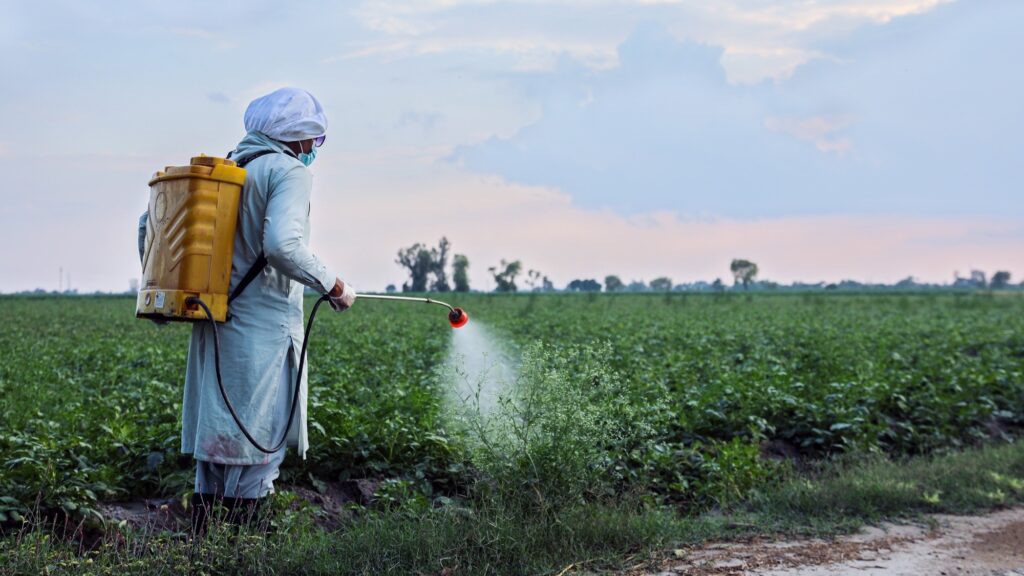
Recently, regulatory authorities in Pakistan took bold action to advance pesticide risk reduction. They enforced a series of bans and restrictions on 13 highly hazardous pesticides. The Department of Plant Protection (DPP) led these decisions after reviewing scientific evidence and responding to repeated pesticide residue violations, especially in rice crops intended for export.
Several pesticides were completely banned due to health, environmental, and trade risks. While others will remain in limited use under strict conditions.
These regulatory reforms represent a significant step forward in reducing pesticide risk in Pakistan, aiming to protect human health, enhance food safety, and align national practices with international standards. The bans are backed by further measures, including:
- Strict labelling and retail sale controls
- Mandatory compliance reports from pesticide companies
- Public awareness campaigns to educate farmers
- Strengthened field monitoring by provincial agriculture departments
This policy shift underscores the country’s commitment to safer crop protection. Plus, it highlights the opportunity for PlantwisePlus to support the adoption of IPM and other sustainable alternatives.
Local action and national impact support pesticide risk reduction with PlantwisePlus
As Pakistan moves to implement stronger regulations on pesticide use, the success of these reforms depends on policy and practical, farmer-focused support systems. This is where PlantwisePlus can make a critical impact in advancing pesticide risk reduction in Pakistan.
To align with recent bans, plant doctors trained under PlantwisePlus have been instructed to avoid recommending HHPs. Instead, they promote safer, low-risk alternatives, like biopesticides. These changes are reinforced through community radio broadcasts that raise awareness about pesticide risks and promote safer practices.
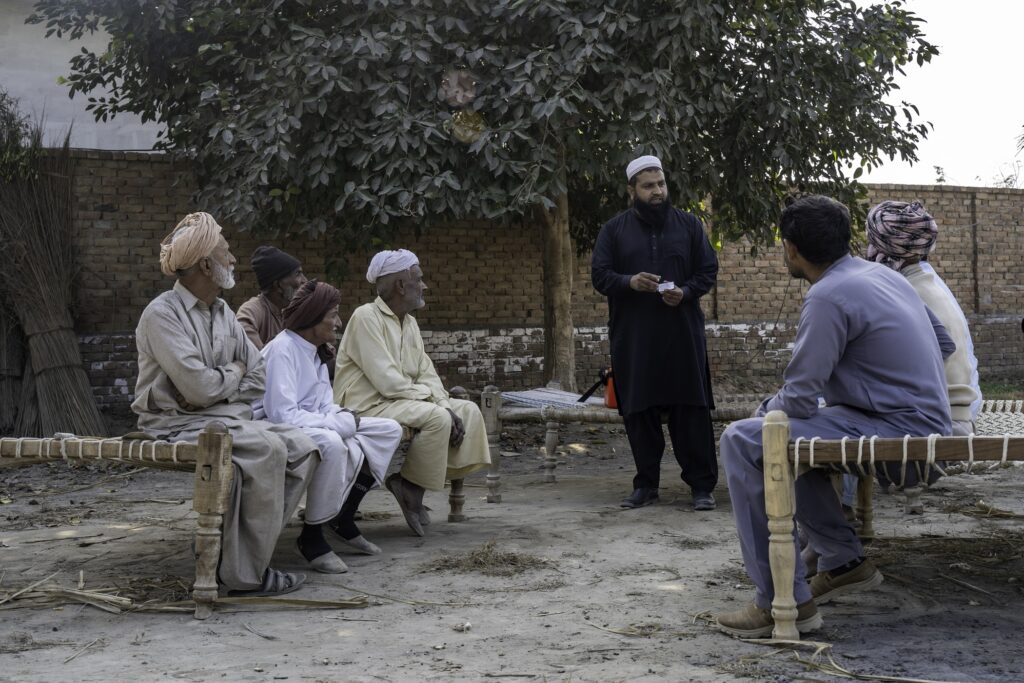
PlantwisePlus has also invested in biological pest control infrastructure, establishing Trichogramma Rearing Facilities in Mardan, Muzaffarabad, and Muzaffargarh. These hubs produce Trichogramma cards, an augmentative biological control method, which is an alternative to synthetic pesticides.
In parallel, the programme has introduced IPM packages tailored for tomato. These are designed to be compatible with biocontrol agents such as Trichogramma. This package promotes practices that reduce reliance on hazardous pesticides. While the tomato IPM serves as a model, plant doctors continue to provide tailored advice across a wide range of crops, helping farmers adopt practical, low-risk solutions. Master trainers from Punjab, Khyber Pakhtunkhwa (KPK), and Azad Jammu & Kashmir (AJ&K) are passing this knowledge to thousands of farmers, helping to instil safer practices across rural farming communities.
At a plant clinic in Muzaffargarh, plant doctor Muhammad Farooq is already advising farmers on how to use these tools to reduce pesticide use safely and effectively. He says:
“We visit the farmers’ fields and train them on how to use these cards. We are distributing 50,000 cards to farmers every year, free of charge.”
Together, these efforts highlight how PlantwisePlus directly supports pesticide risk reduction in Pakistan by empowering those who influence everyday pest management decisions.
Tools, training and regulation
Beyond the field, PlantwisePlus is contributing to a national strategy for long-term pesticide risk reduction in Pakistan through technology, training, and regulatory support.
Key digital tools under the programme include:
- The CABI BioProtection Portal, which helps identify registered, low-risk biocontrol products.
- The CABI Academy, offering structured training to improve diagnostic skills and sustainable pest management, including a course on bioprotection.
- The PlantwisePlus Knowledge Bank, providing science-based factsheets and pest management decision guides for farmer advisors.
PlantwisePlus has also supported Pakistan’s Ministry of National Food Security and Research (MNFSR) and the Department of Plant Protection (DPP) in developing biopesticide regulations. These new rules pave the way for safer, environmentally friendly alternatives to enter the market, addressing a critical need for effective, accessible solutions beyond HHPs.
Recognizing the importance of food safety, the programme hosted awareness sessions on maximum residue levels (MRLs) and pre-harvest intervals (PHIs) at the National Agricultural Research Centre (NARC). These sessions, led by national experts, provided training in best practices for residue management for plant doctors and agro-industry officials. As a result, more farmers are now equipped to comply with domestic and international food safety standards.
Supporting sustainable agriculture
Pakistan’s approach to pesticide risk reduction exemplifies how coordinated policy, science-based tools, and community-level training can produce lasting change. By restricting HHPs and introducing alternatives, such as IPM and biocontrols, the country is laying the groundwork for more sustainable and resilient agriculture.
The work of PlantwisePlus illustrates how international collaboration can accelerate national progress. From digital advisory tools to regulatory support and biological control demonstrations, PlantwisePlus has helped turn government decisions into measurable action at the farm level.
As noted in an official letter of appreciation from Pakistan’s Department of Plant Protection:
“The Department recognizes the valuable technical support extended by CABI in advancing the safe use of plant protection products and strengthening the implementation of sustainable pest management practices.”
This partnership reinforces the idea that pesticide reform is not just about banning harmful chemicals; it’s about empowering people with knowledge, tools, and alternatives.
PlantwisePlus and pesticide risk reduction in Pakistan
While official bans and restrictions set important standards, changing behaviours in the field requires trusted advice, accessible alternatives, and ongoing training. PlantwisePlus delivers on all these fronts. The programme trains plant doctors, promotes biocontrol solutions, strengthens diagnostic skills, and equips decision-makers with digital tools and regulatory insights.
Together, these efforts ensure that pesticide risk reduction in Pakistan is both a policy objective and a practical reality. Empowering those who make daily pest management decisions to choose safer, more sustainable options.
Looking ahead, PlantwisePlus is preparing a new phase of targeted activities to address the social and behavioural aspects of pesticide risk reduction in Pakistan. Starting in September, the programme will roll out community-based awareness sessions with farmers, local leaders, and pesticide dealers to promote safer pest management practices. To reinforce these efforts, 60 radio spots will broadcast daily over 90 days, covering key topics such as the risks of pesticide misuse, safer alternatives, and proper handling and disposal of pesticide containers. Crucially, gender considerations will be integrated throughout to ensure inclusive engagement and equitable access to information.
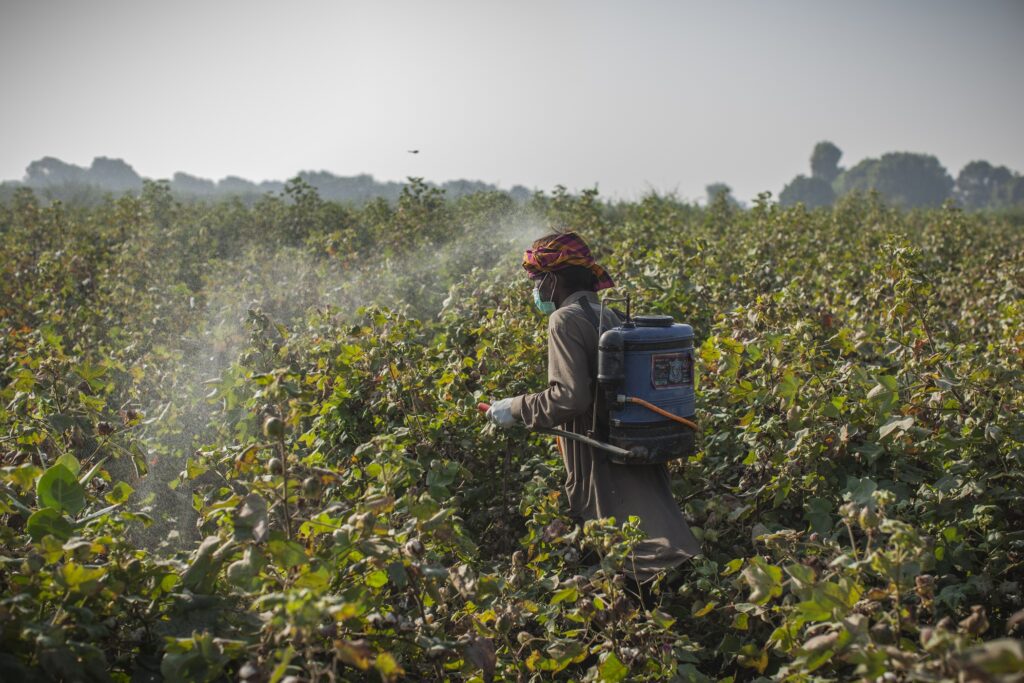
By combining field education with enhanced institutional capacity, PlantwisePlus is helping to establish a scalable and sustainable model for pesticide risk reduction, where safer crop protection becomes the new norm across farming systems. With continued commitment and cross-sector collaboration, a low-risk, climate-smart agricultural future is already taking root in Pakistan.
Multistakeholder workshop further paves the way for the registration of biopesticides in Pakistan
Pakistan’s new biopesticide regulation highlighted at Annual Biocontrol Industry Meeting
Paving the way for lower-risk crop protection: Biopesticide regulatory pathways
Trichogramma mass rearing facilities piloted in Pakistan
Additional information
PlantwisePlus gratefully acknowledges the financial support of the Directorate-General for International Cooperation, Netherlands (DGIS); European Commission Directorate General for International Partnerships (INTPA); UK International Development from the UK government; and the Swiss Agency for Development and Cooperation (SDC).
1 Comment
Leave a Reply
Related News & Blogs
PlantwisePlus develops agro-input dealer training scheme with Bangladesh government
Pest outbreaks in Bangladesh are causing a rapid increase in the sale of pesticides. Farmers are turning to chemical products such as fungicides, herbicides and insecticides to manage pests, which they often buy from their local agro-input dealer. Howe…
22 January 2026

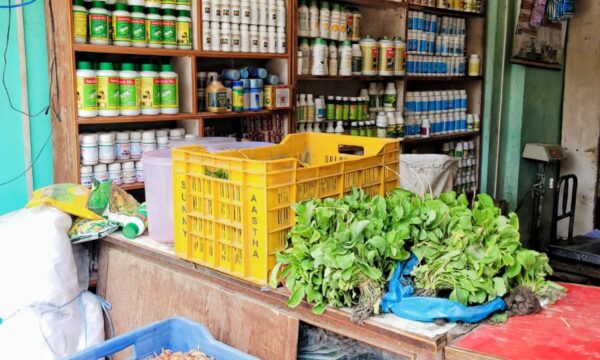
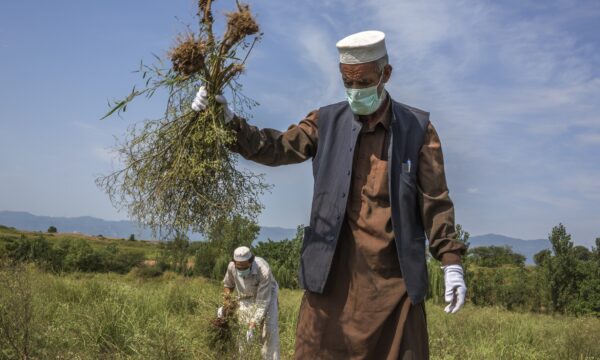
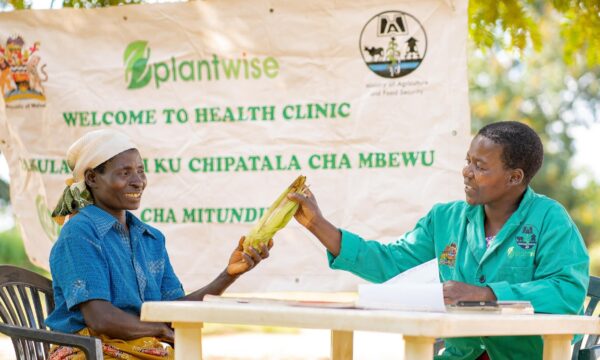
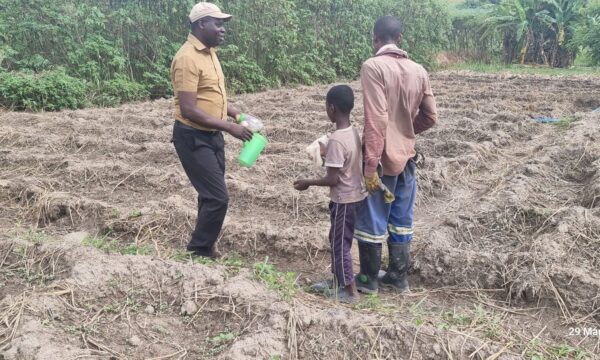
This initiative marks a significant stride toward sustainable agriculture in Pakistan. By promoting integrated pest management and reducing reliance on highly hazardous pesticides, we not only protect farmers’ health but also enhance food safety and environmental sustainability.